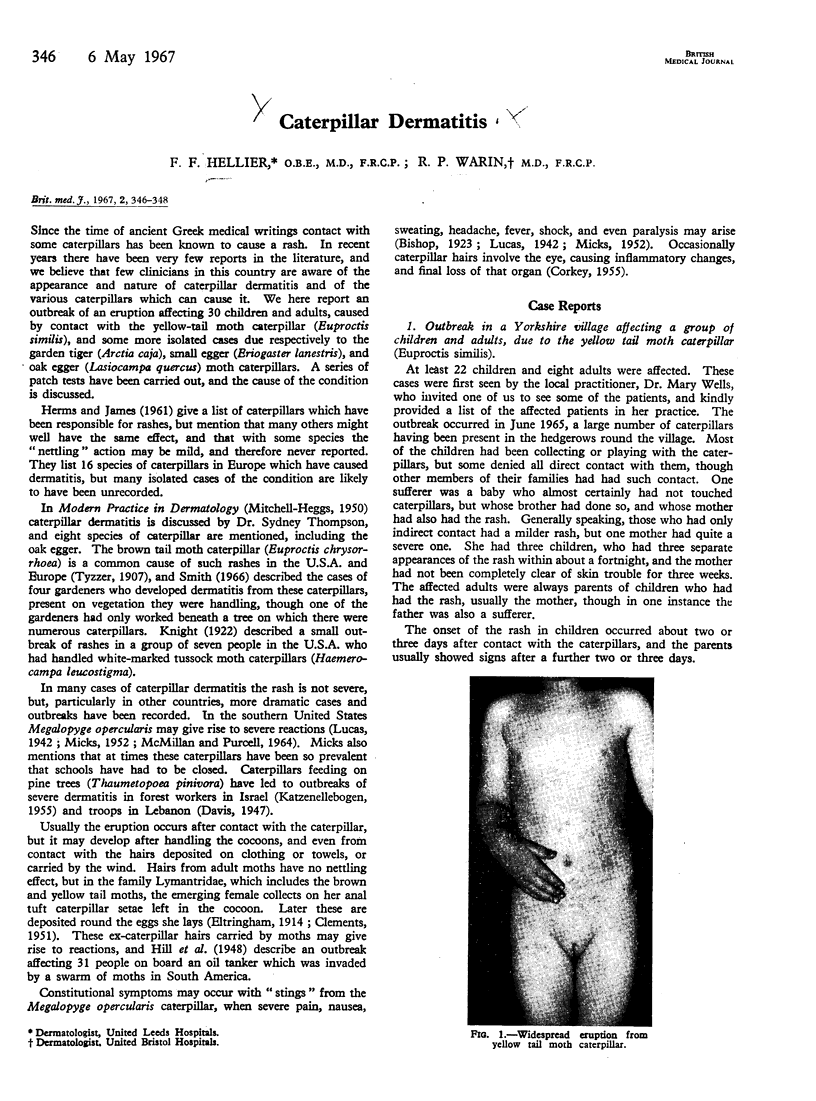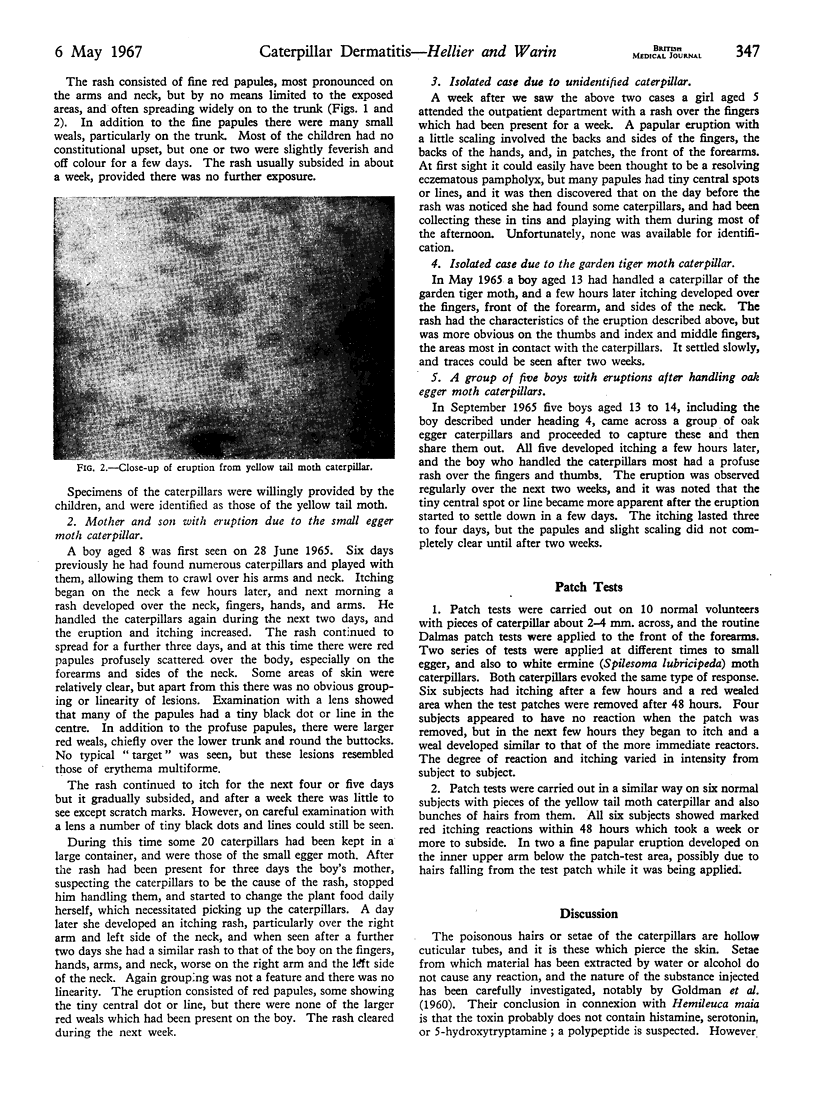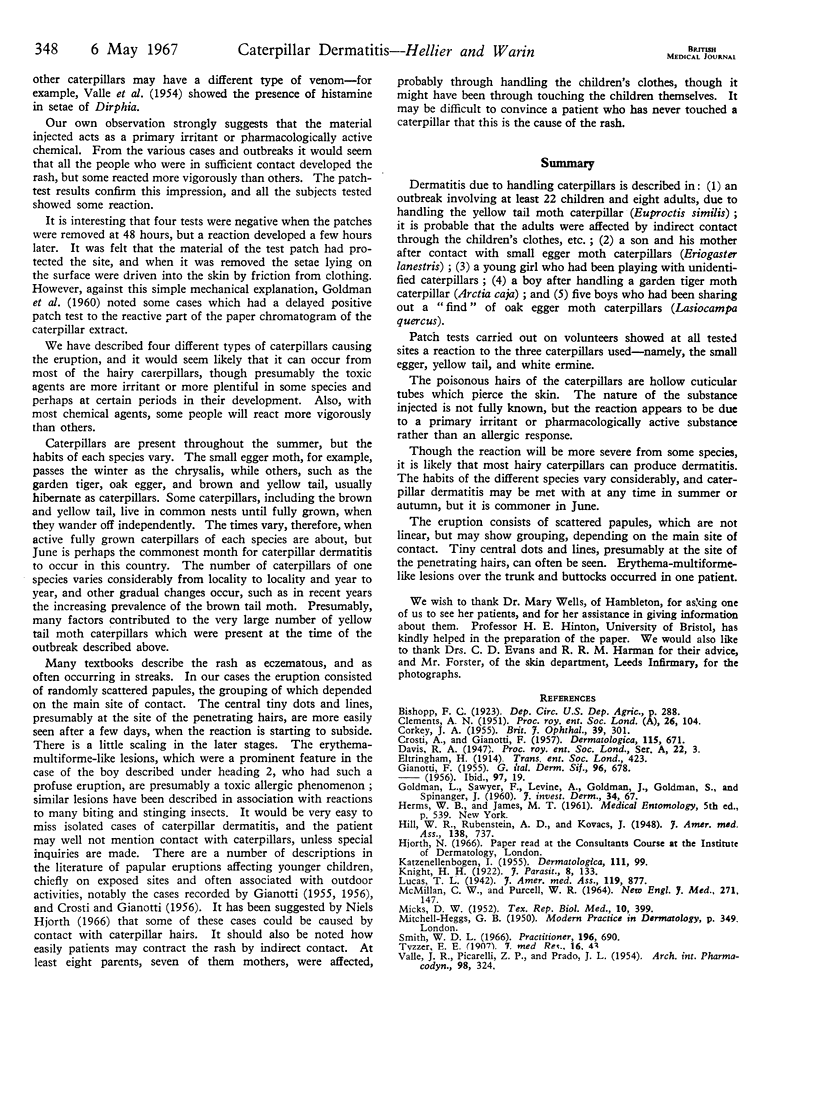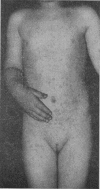Full text
PDF


Images in this article
Selected References
These references are in PubMed. This may not be the complete list of references from this article.
- CORKEY J. A. Ophthalmia nodosa due to caterpillar hairs. Br J Ophthalmol. 1955 May;39(5):301–306. doi: 10.1136/bjo.39.5.301. [DOI] [PMC free article] [PubMed] [Google Scholar]
- CROSTI A., GIANOTTI F. Dermatose éruptive acro-située d'origine probablement virosique. Dermatologica. 1957 Nov;115(5):671–677. [PubMed] [Google Scholar]
- GIANOTTI F. Rilievi di una particolare casistica tossinfettiva caratterizzata da eruzione eritemato-infiltrativa desquamativa a focolai lenticolari, a sede elettiva acroesposta. Soc Ital Dermatol Sifilogr Sezioni Interprov Soc Ital Dermatol Sifilogr. 1955 Nov-Dec;96(6):678–697. [PubMed] [Google Scholar]
- KATZENELLENBOGEN I. Caterpillar dermatitis as an occupational disease. Dermatologica. 1955 Aug;111(2):99–106. doi: 10.1159/000256344. [DOI] [PubMed] [Google Scholar]
- MICKS D. W. Clinical effects of the sting of the "puss caterpillar" (Megalopyge opercularis S & A) on man. Tex Rep Biol Med. 1952;10(2):399–405. [PubMed] [Google Scholar]
- Smith W. D. Contact urticaria due to the brown-tail moth. Practitioner. 1966 May;196(175):690–694. [PubMed] [Google Scholar]
- VALLE J. R., PICARELLI Z. P., PRADO J. L. Histamine content and pharmacological properties of crude extracts from setae of urticating caterpillars. Arch Int Pharmacodyn Ther. 1954 Jul 1;98(3):324–334. [PubMed] [Google Scholar]




